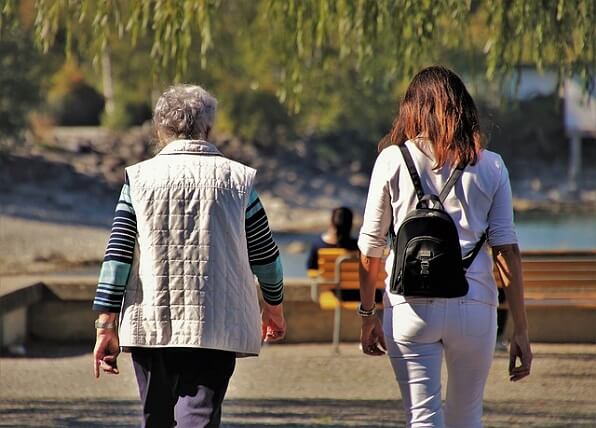 As your parents or other elderly loved ones begin to age, they begin to have changing needs. Without the help of people like you, they may never even think to do everything possible to meet those new needs, but with just a little thought and care, you can make a huge difference for them in their golden years.
As your parents or other elderly loved ones begin to age, they begin to have changing needs. Without the help of people like you, they may never even think to do everything possible to meet those new needs, but with just a little thought and care, you can make a huge difference for them in their golden years.
It may be time to search (and research) what might be the best retirement home or nursing care facility, but even before that point, there is much you can do to make their life more comfortable, healthy, and safe. Here are 4 key ways you can better care for your elderly parents, as well as help them to better care for themselves:
1. Help Them Fight Loneliness
One of the major negative factors that affects US seniors today is loneliness. This might seem surprising, given it is not a “medical condition” and given that there are so many quick ways to contact others with modern technology. But many seniors aren’t familiar with smartphones and web “surfing.” One way to help them fight loneliness is by teaching them to use these new tools.
Another way is by giving them frequent phone calls and/or texts and by visiting them in person whenever possible. Bring young children when you come, if you have any, and also think about getting your mom or dad a pet, if they are able to care for one. Finally, ask friendly neighbors to check in on them once in a while, and see about connecting them with new friends at a local senior center.
2. Be Sure They Are Insured
Take the time to help your elderly loved one sign up for Medicare or Medicaid, along with any Medicare supplement insurance or other health coverage they may need. As we age, the chances of needing expensive medical care increase greatly – and you never know when a condition may arise, so you always have to be prepared.
Additionally, if your parents are still active (or would like to be!), then consider signing them up for the silver sneakers program. This program is often covered by health insurance for those who are 65 and older and gives them free or discounted access to local gyms and fitness centers. It will keep them focused, keep them healthier, and may be needed as part of a rehab treatment in some cases.
3. Help Your Parents Get Out & About!
No one likes to feel “trapped” in his or her own home. But it becomes difficult to get out as you lose the ability to drive safely and legally or to walk significant distances without getting exhausted.
An in-home caregiver may be able to run errands like grocery shopping, picking up the mail, or making a run to the pharmacy. But a weekly visit, for example, to take them out to special events with the family will be greatly appreciated. Going to the movies, shopping “for fun,” attending a sports event, and other recreational activities need to remain a part of your parents’ lives.
4. Be Sensitive to Feelings of Independence
Finally, realize that almost everyone who ages and begins to lose independence to a degree finds it hard to accept. Many elderly people who love being “cared about” don’t necessarily like the idea of being “cared for.” Therefore, try to find that perfect balance where you bring key medical, social, economic, and other help where it’s needed but don’t press in on areas that your loved one is still capable of doing him or herself. Show respect and encourage them to stay as independent as possible for as long as possible.
There are many other tips we could add, but these four are key. When it becomes infeasible for your elderly loved one to live alone at home, you may need to consider calling up professional caretakers. Till then, do what you can to make life more comfortable for them and keep a watchful eye.


Comments